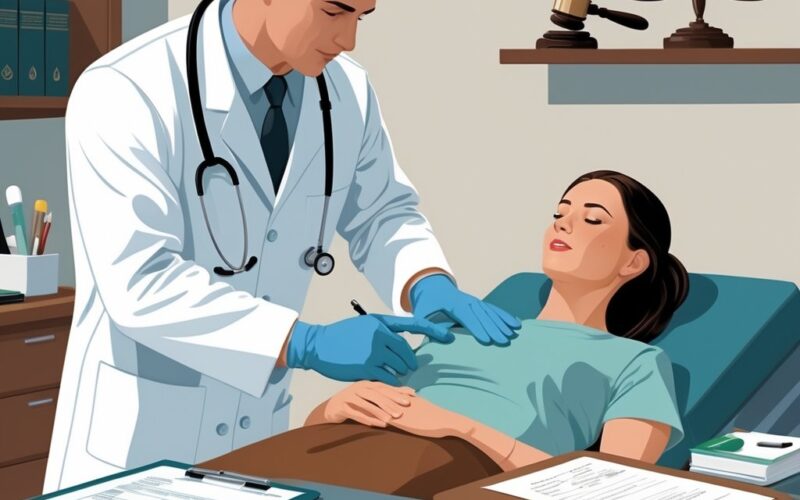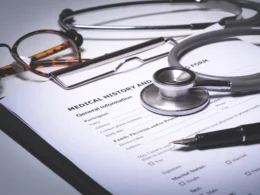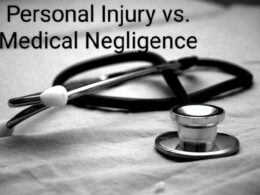When you’re in the middle of a workers’ compensation claim or personal injury case, you might get asked to attend a medical legal exam.
A medical legal exam is a medical evaluation performed by an independent doctor to help sort out disputed issues about your injury, like what caused it, how bad it is, and what treatment you need.
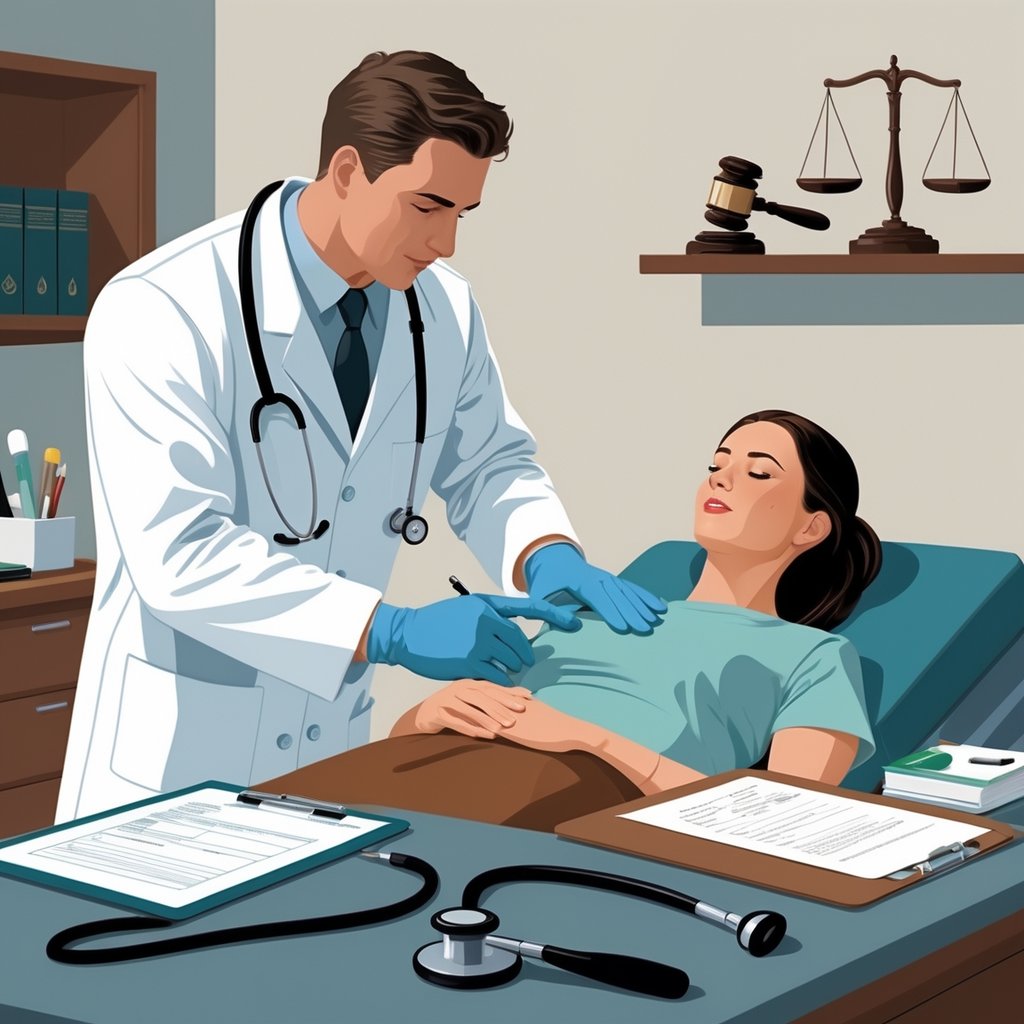
This isn’t your usual doctor visit. The physician doesn’t treat you or give advice but instead writes up a report for insurance companies, lawyers, or maybe the court.
These evaluations help determine disability levels and workers’ compensation benefits when there’s a disagreement about your medical condition.
If you know what happens during these exams, you can show up prepared and less anxious. The process includes reviewing your medical records, a physical exam, and a bunch of questions about your injury and symptoms.
Key Takeaways
- Medical legal exams are independent evaluations that create reports for legal cases rather than providing treatment
- These exams help resolve disputes about injury causes, disability levels, and compensation benefits
- The examining doctor reviews your records, performs a physical exam, and writes a detailed medical report
Definition of a Medical Legal Exam

A medical legal exam checks your health condition for legal or insurance reasons, not for treatment. These medicolegal examinations serve different purposes and the type depends on your legal situation.
Purpose of a Medical Legal Exam
The main goal here is to give an objective medical opinion for legal cases. The doctor doesn’t treat you or give advice.
A medical-legal examination helps obtain opinion about the nature, extent and likely cause of an illness or injury connected to your claim. The examiner just documents your current condition.
Key purposes include:
- Pinpointing what caused your injury or illness
- Figuring out how severe your condition is
- Assessing long-term effects and prognosis
- Evaluating disability or impairment levels
- Supporting liability determinations in legal cases
Insurance companies and courts use these exams to make decisions about your claim. The examiner stays neutral and sticks to medical evidence.
Types of Medical Legal Exams
Legal situations call for different types of medical legal exams. Personal injury assessments check the physical and psychological impact of injuries from accidents or negligence.
Common exam types include:
| Exam Type | Purpose |
|---|---|
| Personal Injury | Assess accident-related injuries |
| Disability Assessment | Evaluate functional limitations |
| Workers’ Compensation | Review work-related injuries |
| IME (Independent Medical Exam) | Provide neutral medical opinion |
Disability assessments focus on evaluating functional limitations caused by physical or mental conditions. These help determine eligibility for benefits or accommodations.
Workers’ compensation exams look at injuries from your job. The examiner considers how your work duties may have caused or made things worse.
Independent Medical Exams (IME) use doctors who don’t know you. Insurance companies usually request these for an unbiased opinion about your medical status and treatment.
The Medical Legal Exam Process

The medical legal exam runs through a set process from the first request to the final report. Each step has its own requirements, and things can change depending on your case and location.
Exam Request and Scheduling
Your case starts when someone requests a medical legal evaluation through the right channels. For California workers’ compensation, qualified medical evaluators are picked through a panel process run by the Department of Workers’ Compensation.
QME Panel Selection Process:
- Submit panel request to DWC
- Get a list of three physicians
- Each side removes one name
- The last physician does the exam
In other injury cases, insurance carriers and employers have legal rights to request independent examinations. Scheduling usually happens within 30 to 60 days.
Your attorney will get the exam date and location. You need to show up unless you have valid medical reasons that make it impossible.
Record Review and Preparation
The doctor gets your medical records before the appointment. This includes treatment notes, diagnostic reports, x-rays, and anything else from your healthcare providers.
Documents Typically Reviewed:
- Medical treatment records
- Diagnostic imaging (x-rays, MRIs, CT scans)
- Lab test results
- Pharmacy records
- Employment records
The doctor reviews all this to get a handle on your injury, treatment history, and current state. This helps them ask better questions during your exam.
You should also gather any extra medical records or paperwork that could help your case.
Steps During the Examination
Your exam usually takes one to three hours, depending on how complicated things are. The examiner follows a few standard steps.
History Taking comes first. The doctor asks about your injury, symptoms, treatment, and how the condition affects your daily life. Just answer honestly.
Physical Examination is next. The doctor checks the injured areas, tests your range of motion and strength, and might do some diagnostic tests.
Review of Records happens during the exam too. The doctor may ask you to clarify things from your records or explain any differences between your current symptoms and what’s in your file.
The examiner takes notes through the whole process. Sometimes they order extra tests if they feel it’s needed.
Report Generation and Outcomes
The doctor writes a detailed report, usually within 30 to 60 days after your exam. Medical-legal reports provide detailed medical opinions used in legal proceedings.
Report Contents Include:
- Summary of records reviewed
- History from your exam
- Physical findings
- Medical opinion on what caused the injury
- Disability assessment
- Treatment recommendations
Your medical opinion ends up as evidence in your case. The report answers legal questions about your injury, treatment, and work restrictions.
Everyone involved in your case gets a copy. This document can affect settlement talks or court decisions.
Who Performs a Medical Legal Exam
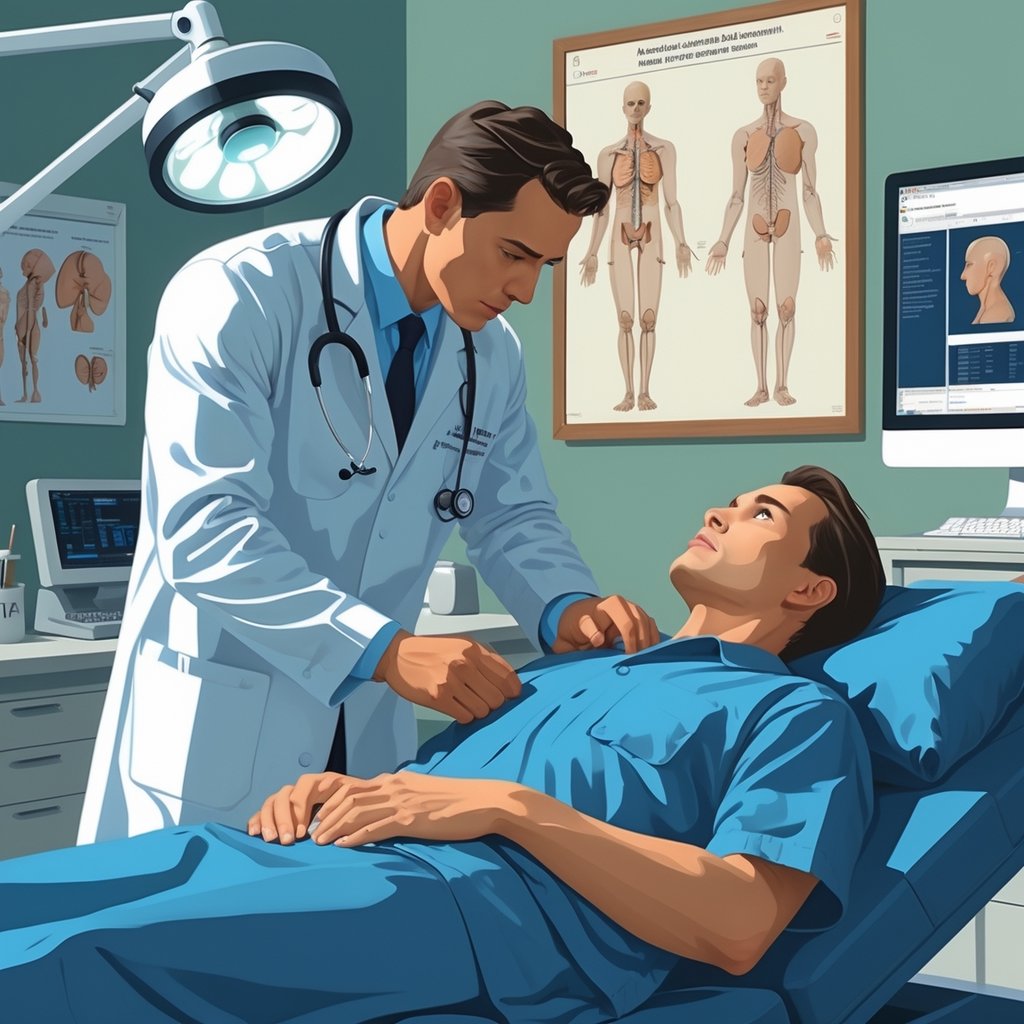
Licensed doctors and healthcare professionals with special training do medical legal exams. The type of examiner depends on your location, injury, and if it’s a workers’ comp case.
Qualified Medical Evaluators
Qualified Medical Evaluators (QMEs) handle California workers’ comp cases. These doctors pass a tough exam and finish a 12-hour report-writing course.
Only about half pass the QME test the first time. The test covers medical-legal evaluation and report writing.
Once certified, the Department of Workers’ Compensation appoints QMEs for two years. They can then evaluate injured workers.
QME Selection Process:
- A panel of three QMEs is provided
- Your attorney removes one name
- The insurance company removes one name
- The last QME examines you
QMEs check your records and do physical exams. They give medical opinions that count as evidence before the Workers’ Compensation Appeals Board.
Doctors of Medicine and Osteopathy
Doctors of Medicine (MDs) and Doctors of Osteopathy (DOs) do most medical legal exams. They’ve finished medical school and residency in their specialty.
For non-workers’ comp cases, any licensed MD or DO can do your exam. They don’t need special certification beyond their license.
Common Specialties Include:
- Orthopedic surgeons for bone and joint injuries
- Neurologists for brain and nerve conditions
- Psychiatrists for mental health claims
- Internal medicine doctors for general conditions
Your examiner should know your type of injury. Insurance companies or attorneys usually pick doctors with relevant experience.
Doctors of Chiropractic and Other Specialists
Doctors of Chiropractic (DCs) can handle exams for spine and musculoskeletal injuries. They focus on your back, neck, and joints.
Other specialists may examine you based on your injury:
Specialist Types:
- Physical therapists for mobility assessments
- Occupational therapists for work capacity evaluations
- Psychologists for mental health conditions
- Podiatrists for foot and ankle injuries
The examiner must have a valid license in your state. They should know how to write reports for legal cases.
Your case type decides who can examine you. California workers’ comp cases need specific certifications, but other cases are more flexible.
Medical Legal Exams in Workers’ Compensation
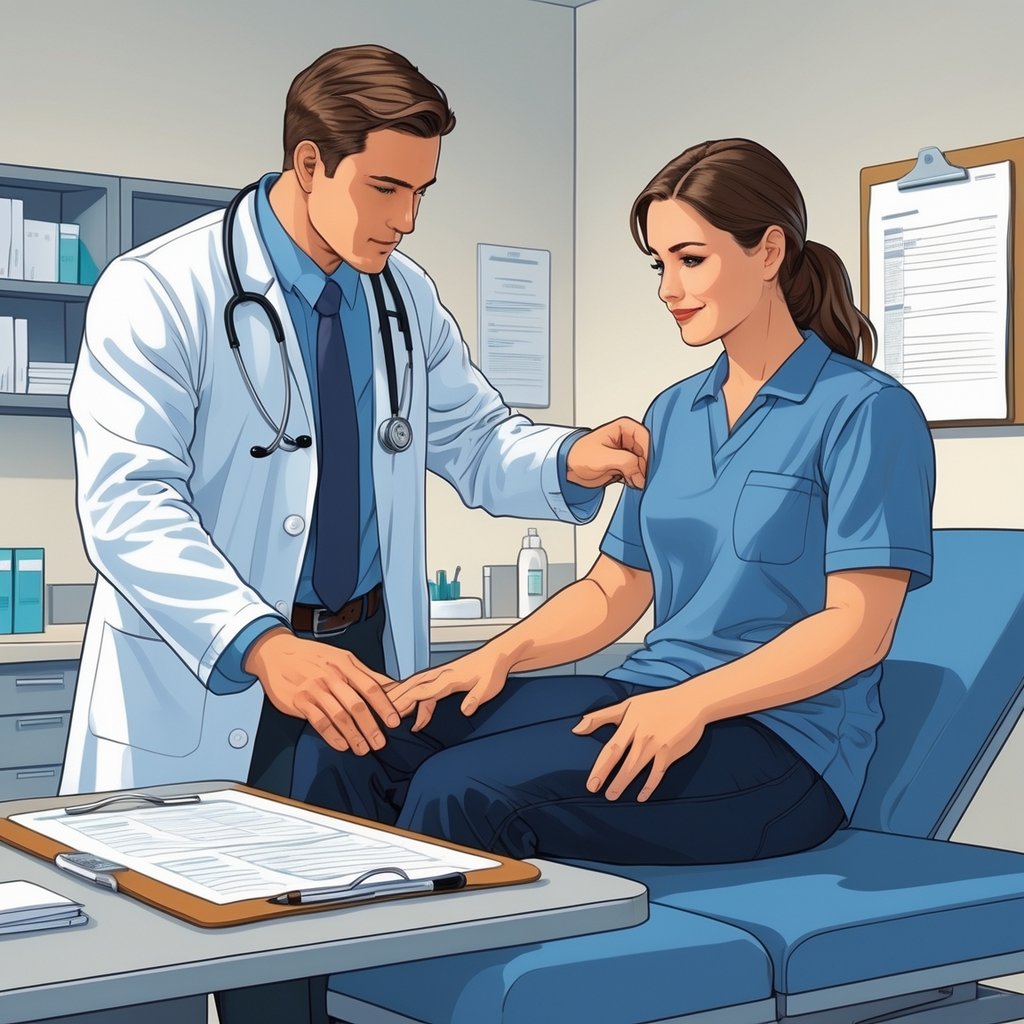
Medical legal exams are crucial when injured workers and insurance companies disagree about the extent, cause, or treatment of workplace injuries. Certified doctors do these independent assessments.
Role in Workers’ Compensation Claims
If you file a workers’ compensation claim, disagreements often pop up between you and the insurance company about your injury. Medical legal exams help resolve these disputes by giving an independent medical opinion.
These exams focus on:
- Nature and extent of your workplace injury
- Causation between your work and injury
- Future treatment needs
- Disability rating and work restrictions
The doctor checks your records and does a physical exam. They write a report that becomes evidence in your case.
The medical opinion can be used as evidence before the Workers’ Compensation Appeals Board. This affects your benefits, treatment, or settlement.
Division of Workers’ Compensation Requirements
The Division of Workers’ Compensation Medical Unit certifies qualified physicians for these exams. Doctors must meet strict training and certification standards.
Physician Requirements:
- Pass a comprehensive medical-legal exam
- Complete a 12-hour report-writing course
- Get appointed for two years
- Keep up certification
The Division of Workers’ Compensation manages the process to keep things fair. When you need an evaluation, a panel of three doctors is generated through an official process.
You and the insurance company each remove one doctor from the panel. The last doctor examines you.
Key Elements of the Medical Legal Examination
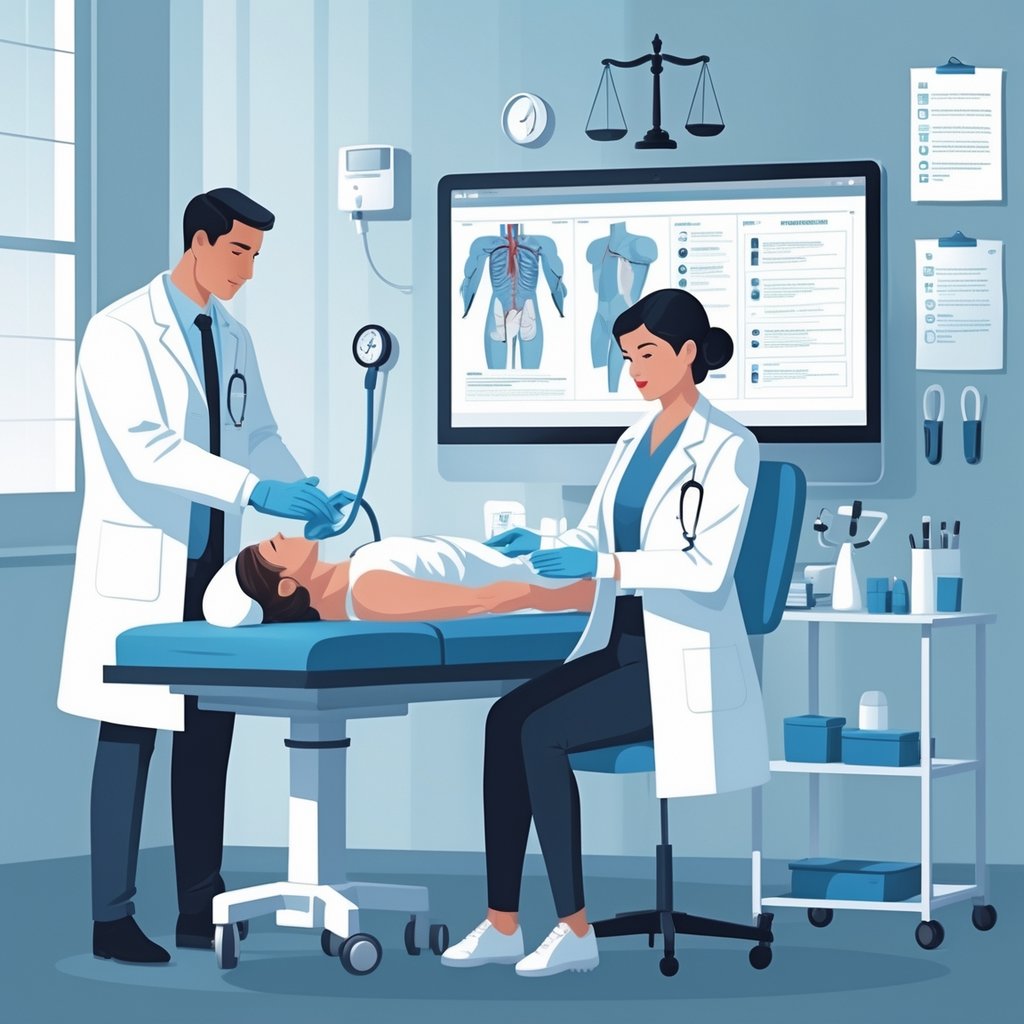
Medical legal examinations stick to a structured approach with three main parts. The doctor reviews your medical history, does a physical and any diagnostic testing, and then gives an objective medical opinion based on what they find.
Review of Medical History
The examining doctor starts by gathering your medical records and any documentation that matters. This could mean past treatments, hospital stays, surgeries, or any ongoing conditions you deal with.
What the doctor reviews:
- Previous records from all your doctors
- Diagnostic test results and imaging
- Prescription history
- Employment records if your injury happened at work
The doctor will ask questions about your current symptoms and how they impact your daily life. Be honest and specific about what you can and can’t do, and about your pain.
They also want to know how your injury or illness happened. This helps them figure out how your condition developed and if it connects to the legal case.
The medical history review sets up a timeline of your health. It shows what changed before and after the incident.
Physical and Diagnostic Assessment
The physical exam is the most hands-on part of your medical legal evaluation. The doctor focuses on the body parts or systems involved in your case.
Common examination components include:
- Range of motion testing
- Strength checks
- Neurological testing
- Watching how you move and stand
Sometimes the doctor will order more tests, like x-rays, if they need more detail. Still, extra testing is usually limited in these exams.
X-rays and imaging give a look at what’s going on inside that a physical exam just can’t. These tests back up injuries or conditions with hard evidence.
The doctor writes down everything they see and everything you say about your symptoms.
Analysis and Medical Opinion
After the exam and review, the doctor forms a medical opinion. This opinion answers the legal team’s or insurance company’s specific questions.
The medical opinion usually covers:
- If your condition relates to the incident
- How bad your injuries or disabilities are
- Your expected recovery timeline
- Any permanent limits you might face
The doctor compares your condition to medical standards and their experience. They look for a match between your symptoms and the injury story.
Good medical legal evaluations focus on what can be measured, not just what you say. The doctor weighs what they find in the exam against your medical history.
The final opinion goes into a detailed report. This report explains the doctor’s reasoning in terms that legal folks can actually follow.
Legal and Administrative Considerations
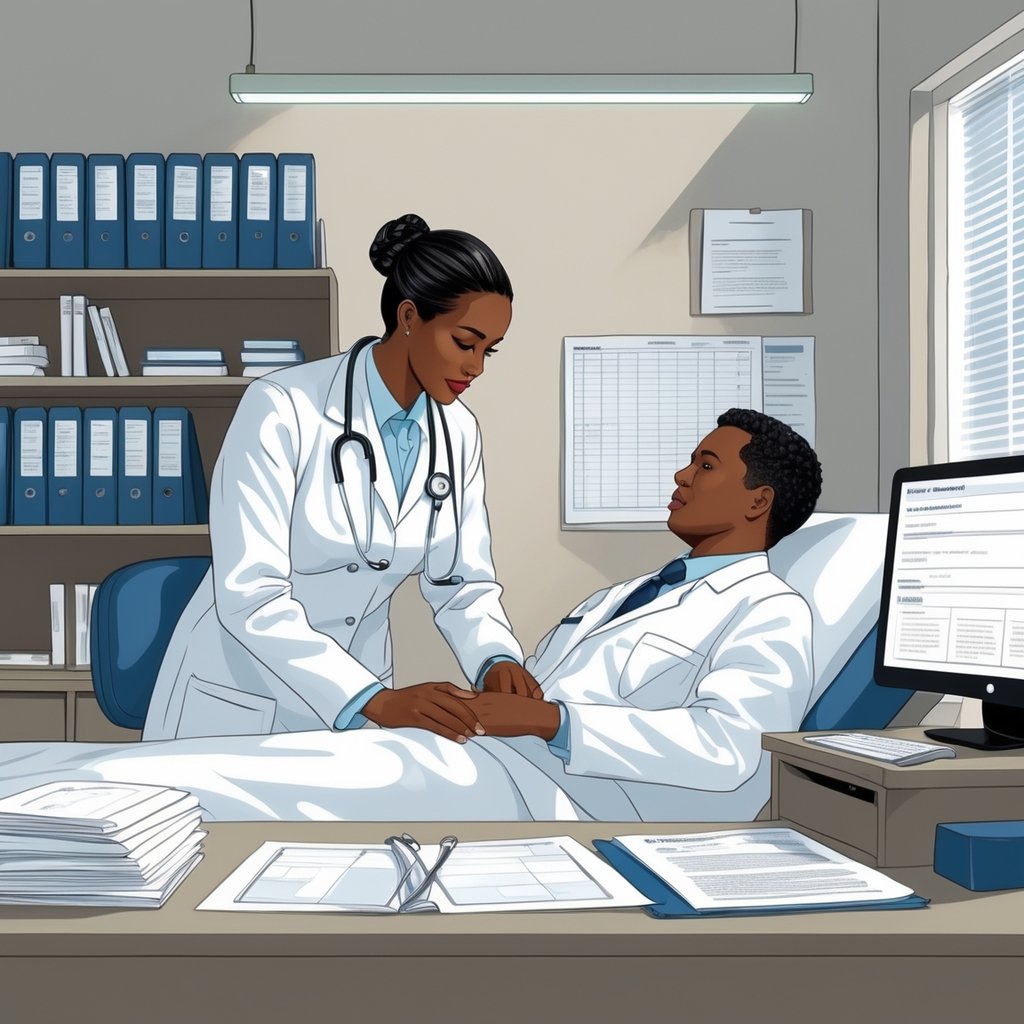
Medical legal exams have to follow strict rules for fair results. Doctors need to stay neutral and write thorough reports courts can trust.
Impartiality and Objectivity
You want a doctor who’s totally neutral during your exam. The examiner can’t take sides.
Medical legal experts must remain impartial and independent, sticking to medical facts. They can’t let outside pressure sway their findings.
Key Requirements for Neutral Exams:
- No financial ties to insurance companies or lawyers
- Stick to medical evidence
- No personal opinions about your case
- Same standards for every patient
The doctor needs to examine you like any other patient. They shouldn’t rush or skip anything important.
Your examiner should know your type of injury. A back injury means you need a spine specialist, not a heart doctor.
Comprehensive Medical Legal Reports
Your exam results end up in a detailed written report. This report becomes evidence for your legal case.
Medical legal reports include the doctor’s findings, opinions, and conclusions about your condition. The report has to be clear enough for lawyers and judges to follow.
Standard Report Contents:
- Your medical history
- Physical exam results
- Test results and imaging
- Treatment suggestions
- Work restrictions if needed
The report explains how your injury affects your daily life. It covers your ability to work and your need for future care.
Good reports help decide fair compensation for your injuries. They also help figure out liability in accident cases.
Importance in Legal Proceedings
Medical legal exams can make or break your case. Courts rely on these reports to decide your claim.
The exam results show your injuries are real and serious. They reveal how the accident changed your health and your life.
Expert doctors may testify in court to explain their findings. They help judges and juries make sense of complicated medical stuff.
How Exams Impact Your Case:
- Show the extent of your injuries
- Link your injuries to the accident
- Prove your need for ongoing treatment
- Support your request for damages
Insurance companies use these exams to decide claim payments. Strong medical evidence usually means better settlement offers.
Your lawyer uses the report to build your case. Weak or incomplete exams can really hurt your chances for fair compensation.
Frequently Asked Questions
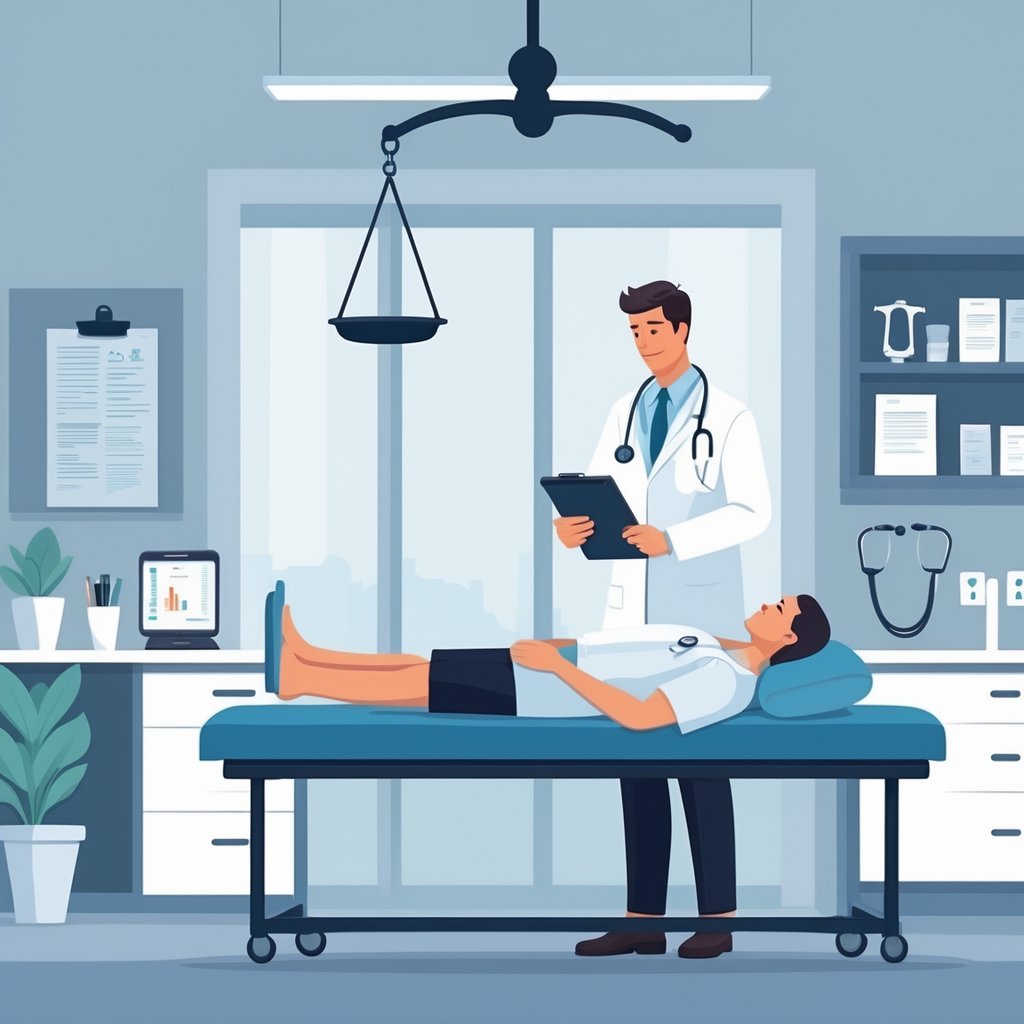
Medical legal exams have specific procedures, detailed reports, and need qualified professionals who follow strict ethical rules. These exams really aren’t like your regular doctor visits.
What are the typical procedures involved in a medico-legal examination?
A medico-legal examination follows specific steps that set it apart from a normal checkup. The examiner reviews all your medical records: reports from treating doctors, imaging like X-rays and MRIs, and hospital notes.
You’ll answer questions about the incident that caused your injuries. The examiner wants to know about your symptoms, medical history, and how injuries affect your life and work.
A physical exam comes next. The doctor checks your range of motion, strength, sensation, and reflexes, depending on your injuries.
The examiner might ask follow-ups to clarify things. You should be honest and thorough in your answers for the best assessment.
How is a medico-legal report compiled and what information does it usually contain?
The doctor writes a comprehensive report after your exam. The report includes your medical history, exam findings, and the doctor’s opinion.
Your diagnosis shows up in the report, along with what probably caused your condition. The examiner gives their opinion on how your injuries might affect your ability to work or function.
The report covers your prognosis and any limits you might have. It looks at liability, causation, compensation, and future medical needs.
Reports usually get finished a few weeks after your exam. Whoever requested the exam gets the report first.
What qualifications are required for a professional to conduct a medico-legal assessment?
The examiner needs to be a qualified healthcare professional with expertise in the right field. They should be a specialist for your specific injuries.
An orthopedic surgeon handles musculoskeletal injuries. A neurologist checks head injuries, while a psychiatrist looks at psychological trauma.
The examiner must have a current medical license and training in their specialty. Experience in providing objective medical opinions for legal cases is also important.
Even if one side requests the exam, the doctor has to stay independent and unbiased. Their opinion should rest on the medical facts.
What is the role of a medical examiner in legal cases?
Medical examiners give objective and impartial medical opinions for legal cases. They assess your condition, not treat it.
They help figure out medical facts that matter in court. This includes the cause of injuries, your medical status, and your future outlook.
The examiner’s report helps lawyers, insurance companies, and courts make decisions. They might have to testify if your case goes to trial.
Medical examiners work in all kinds of legal cases: personal injury, workers’ compensation, motor vehicle accident, medical negligence, and disability cases.
How do medico-legal cases differ from standard medical cases?
A regular medical check-up focuses on your health and treatment needs. A medico-legal exam only assesses your condition for legal or insurance reasons.
Your regular doctor treats you and gives advice. The medico-legal examiner doesn’t treat you or offer medical advice.
Privacy rules work differently in these exams. The information goes into a report that can be shared with lawyers, insurers, or courts.
Your relationship with the examiner is temporary and just for the assessment. Your treating doctor works with you long-term for your care and recovery.
What are the ethical considerations in conducting medico-legal examinations?
The examiner needs to stay independent and objective from start to finish. Even if one side pays for the exam, favoritism just isn’t an option.
Medical facts and evidence should drive every opinion and conclusion. Personal bias or outside pressure can’t sway a professional judgment.
Treating the patient with dignity and respect really matters. The examiner must act professionally and avoid asking anything inappropriate.
Confidentiality rules still apply, though some info will get shared in the legal process. The examiner has to explain the limits of privacy clearly before starting the assessment.






